From Ekushey to International Mother Language Day and Beyond
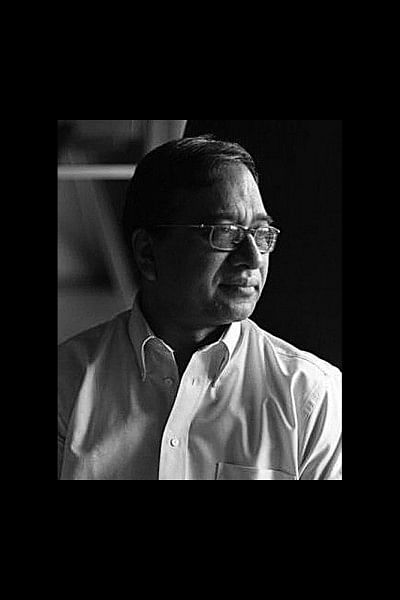
Like every landmark day of every other country, Bangladesh's Ekushey February, or the 21st of February, 1952, has its roots decades back in its history. Like all such landmark days of other nations, it has also been gaining in symbolic stature for its people with every passing year. Indeed, in our time, the day can be seen as not only of national significance but of international consequence since from 17 November, 1999 the United Nations made it "International Mother Language Day."
The origins of the day of course is at the time when only a few months after the independence of Pakistan many Bengali Muslims realized that their right to speak in their mother tongue would be jeopardized in the very land that they had wanted to make completely their own. One by one, Pakistani rulers who privileged Urdu took a number of decisions that galvanized Bengali leaders into strong and principled opposition. On 8 December 1947, Bengali students met in the University of Dhaka's campus to demand that their mother tongue be made an official language of the nascent state. Their demands would be supported by leading intellectuals of East Pakistan. The great Bengali linguist and a professor at the University of Dhaka, Dr. Mohammed Shahidullah, for instance, pointed out that Urdu was not a language rooted even in West Pakistan and declared, "If we have to choose a second state language, we should consider Urdu," implying thereby the claim of Bengali to be the first language. By the end of the year a National Language Action Committee was formed and the movement to counter the imposition of an alien language at the expense of the mother tongue gained momentum throughout East Pakistan.
But the first real shock for these East Pakistani leaders came on 19 March, 1948. This was the day when Mohammed Ali Jinnah, the Bombay-based lawyer who had spearheaded the Muslim move for an independent Muslim state in India in its latter stages, declared arrogantly at a civic reception organized in Dhaka's Ramna Race Course Maidan that "Urdu, and no other language" would be the state language of Pakistan; anyone who felt different, he declared vehemently, were "enemies of Pakistan." Anger, resentment and the feeling of being betrayed and put down were only some of the emotions that stirred up all the East Pakistanis present there. But Jinnah could not sense the mood of dismay and the indignation , and a few days later, speaking at the University of Dhaka's convocation, he reiterated his desire to make Urdu the only state language of Pakistan.
Not surprisingly, even the Bengali Muslim leaders who had worked actively for the creation of Pakistan reacted sharply and openly to his speech. Among them was A.K. Fazlul Huq, once Mayor of Calcutta as well as Premier of Bengal; Huq had left his privileged position in the city after presenting the Lahore resolution of 1940 that had led to the creation of Pakistan. Among the protesters as well was the young Muslim Bengali student leader Sheikh Mujibur Rahman, who had once campaigned actively for Pakistan in Calcutta but had afterwards left India to work for his people directly in East Bengal, and who was destined to be our Bangabandhu.
In the Unfinished Memoirs, a book Bangabandhu had written in jail and left behind incomplete but that is now widely available, we can read of the rising political leader's growing dismay at Jinnah's position as well as the attempts being made by Urdu-speaking politicians in leadership positions in East Pakistan. In fact, Bangabandhu wrote in his unfinished memoirs that as early as February 1948 it had become obvious to him and to many East Pakistani Bengalis "that a great conspiracy was afoot to make Urdu and not Bengali the state language." Immediately, he and his friends met to "protest" against such a conspiracy (97); they also decided to declare 11 March "Bengali Language Demand Day."
By the beginning of 1952 things were coming to a head. On the one hand was Jinnah's successor as the Governor-General of Pakistan, Khwaja Nazimuddin, who was bent on imposing Urdu as the only state language of the country. On the other were the Bengalis of East Pakistan who were determined to resist such a policy and who would now be mobilizing for that reason. On 27 January 1952 Nazimuddin implied that he was going to go ahead with policy of "Urdu-only" as far as the state language was concerned. As soon as Bengalis got an inkling of the central government's plan, many of them got together to form an All-Party Central Language Action Committee. Its members decided to hold strikes and rallies on the 21st of February to demonstrate against these developments.
It was when students had come together at the university gate on that day and had broken through the police line set up to stop their procession that police fired on them. This led to further protests and rallies and even more police action, including arrests of some demonstrating students. The climax came when students who wanted to enter the East Bengal Legislative Assembly a little later to submit their demands were fired upon by the police. The consequence of this police action was the death of a number of students and people passing by, including Abdus Salam, Rafiq Uddin Ahmed, Abul Barkat and Abdul Jabbar. Many others were injured while still others fled to safety for the time being. Even before the day had ended many Bengalis had come to realize what had happened by that time was extraordinary—their people had shed blood for their language and for their rights to break free of arbitrary shackles imposed by men who would have them alienated from their own culture.
As early as the 23rd of February, 1952 a makeshift Shaheed Smritistombo or martyr's monument had been erected on the site of the protest. The police would destroy it three days later and still later when it was rebuilt. Thus in 1954 a new monument was built to commemorate the deaths that had occurred in and around the site. In 1957 the architect Hamidur Rahman began work on building a more imposing monument with the help of the sculptor Novera Ahmed. On both these occasions the United Front Ministry, consisting of many of the leaders who would lead the Bengali movement for complete freedom, including Bangabandhu, would be supporting the project to build the commemorative structure whole-heartedly. But the second United Front government was forced out of power like the first in 1958, and work on the project was stalled for some time. Nevertheless, Bengalis' insistence led the military government to ultimately withdraw its opposition to the construction. Consequently, the imposing monument depicting symbolically a mother standing amidst her martyred sons was completed and inaugurated by Hasina Begum, the mother of the martyred Abul Barkat, on 21 February, 1963.
However, the monument would be targeted by the marauding Pakistani forces at the time of the Bangladesh Liberation war—after all, it had become by this time the supreme symbol of the indomitable Bengali spirit to uphold their culture at all costs and a constant reminder of the biggest thorn in the Pakistani path to assume complete control over East Pakistan. Once Bangladesh was liberated on December 16, 1971, the government prioritized the rebuilding of the monument and it was resurrected completely by 21 February, 1973.
The United Front ministry that had been elected in 1954 to form the cabinet in East Pakistan had decided to create the Bangla Academy in the vicinity of the site of martyrdom to protect, preserve, promote, project and propel Bengali language and culture into the future. The whole month of February since then has been increasingly filled with events commemorating the Bengali language centered on the Bangla Academy. The immensely popular book fair, known as the Ekushey boi mela, is of course the central event of the month. But Ekushey celebrations are not confined to the Ekushey monument located inside the University of Dhaka or the Bangla Academy book fair. In fact, the whole country now celebrates the month through book fairs, discussions on the language movement and its significance and cultural events. This is also the month when the Bangla Academy announces awards for outstanding Bangladeshi writers in different fields and when the government recognizes men and women who have made exceptional contribution to the country's arts and culture by conferring on them the Ekushey Padak or awards.
Even before the turn of the millennium, Ekushey celebrations had spread to Bengali-speaking communities outside Bangladesh. Inspired by the symbolic significance of a day when one focused fully on the central role played in one's life by one's mother tongue, Rafiqul Islam, an expatriate Bangladeshi residing in Vancouver, Canada, proposed in a letter to the then Secretary General of the United Nations Kofi Anan on 9 January, 1998 that the day be proclaimed International Mother Language Day. The letter was taken up in all seriousness and by 1999 UNESCO had made the day International Mother Language Day. This was proof that the idea of Ekushey, once set in motion, like all momentous ideas, had even more earth-embracing consequences.
As I conclude, I think of the martyrs of 21 February 21, 1952. Certainly, they did not die in vain; their spirits live on amazingly. This day Bangladesh is always fully alive, if solemnly so, commemorating them whole-heartedly. Dhaka's Ekuhey Boi Mela, in and around Bangla Academy, buzzes all February. On television recently, we saw a telecom company airing an ad where a Sierra Leone band sang in the mother tongue of the singers the Ekushey February song. Truly, wondrously, the spirit of Ekushey has possessed us all and will inspire us forever to uphold Bengali, our mother tongue and inculcate respect for all mother tongues of the world.
Fakrul Alam is the Pro Vice- Chancellor of East-West University. He is also the Adviser of Star Literature and Review Pages.

 For all latest news, follow The Daily Star's Google News channel.
For all latest news, follow The Daily Star's Google News channel. 

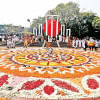
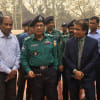
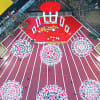
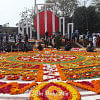



Comments